Getting to know the MSC French African Union: UAF CHAPTER and a visit to Senegal
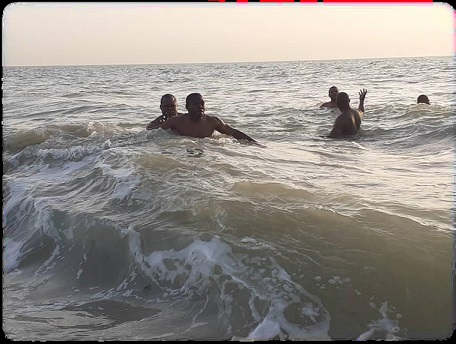
Andre Claessens, First General Councillor, Rome
The chapter was held in Ngazobil with about 20 participants, on the edge of the small Senegalese coastline, which made it possible to find some coolness because of the temperatures rising to 38 degrees during the day. The confreres came from the 3 districts (Congo, Cameroon, Senegal) of the Union and from the South African section. There was a special guest, the former Superior of the UAF, our first African bishop Mgr Toussaint Iluku (Congo) ordained on 21/7/2019. The chapter was accompanied by a facilitator, Fr Christian Ehemba, Provincial Superior of the Piarists. Our Union already has 108 members and will soon be 40 years old. The present Superior is Fr. Yvon Banackissa, originally from Congo-Brazza. The professed members are 44 from Congo DRC, 33 from Cameroon, 14 from Senegal, 5 from Congo-Brazza and 7 from Burkina. There are still 3 European missionaries working in the Congo mission.
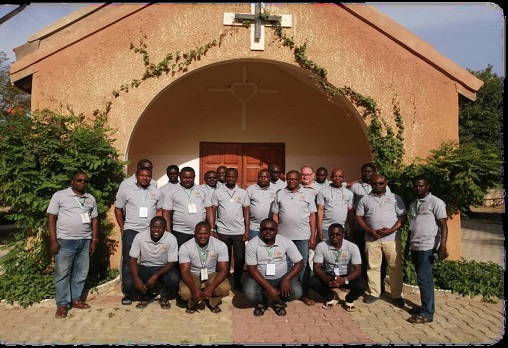
The first week was mainly devoted to listening to the reports written by the communities on their experiences and presented as responses to the Lineamenta sent out by the Superior of the Union. A highlight was on Saturday 6 March when we travelled to Gandigal, the place chosen for the construction of a school in a new district of the capital city which is rapidly expanding. First, the architect talked to us about the project and the different stages of its realisation. Then we went to the 19,000 m² site, which has already been properly fenced off so that the goats and donkeys no longer have access to it. The morning ended with the laying of the foundation stone, blessed by Bishop Iluku. This means that each of our districts will have a school complex.
Afterwards, we visited the dispensary of the FNDSC community in Gandigal for a fraternal meal, and then we were invited by the community of the Daughters of Our Lady in Bandia who have set up their novitiate for Africa less than 10 km from Gandigal.
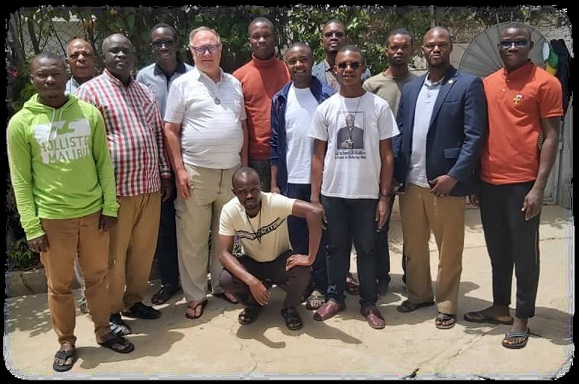
On Sunday we had the opportunity to visit some tourist places in the capital Dakar and to enjoy a delicious meal offered by a member of the N.D.S.C. Fraternity. This excursion ended with a visit to our pre-novitiate in Dakar.
During the second week the members of the chapter worked hard to take up in a frank dialogue the elements worthy of attention in the different reports. This allowed us to have a better understanding of the realities lived in the districts and to realise the richness of this international and intercultural experience, but also the great challenges to be faced in this geographical and cultural diversity. Also the reality of UAF members on mission outside the continent and of students sent for specialised studies was taken into consideration. A whole list of recommendations was drafted to share with professed confreres and those in formation (50).
One of the great challenges we have in common with our Young Diocesan Churches in Africa is that of self-financing.
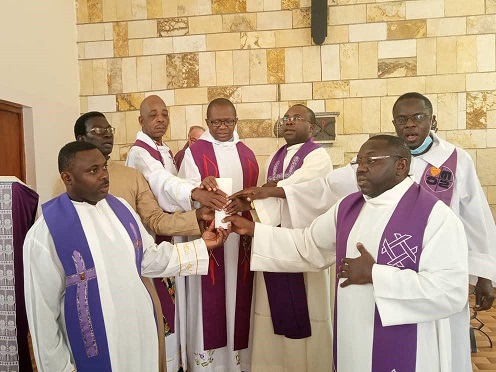
The pandemic crisis has shaken the continent and revealed our extreme vulnerability. The vaccination of the population is still in its infancy. At the same time, we realised that the MSC provinces in the world are practising solidarity with the Union, but their financial situation is no longer good and they have a serious lack of vocations. It is we ourselves who must take our destiny into our own hands and move forward in great solidarity in order to be able to accomplish the traditional and new missions that are - and will be - entrusted to us. The chapter was very clear on this and the implementation of this solidarity must be intensified.
Moreover, our Congo District will be able to celebrate in 2024 the centenary of the MSC presence on African soil. For them, the time of the pioneers is largely over. At the same time, it must be recognised that it is not easy to manage the heritage that the European colleagues have bequeathed to Congo and Senegal. Cameroon is at an advantage in this respect because the MSC only started there in the 1980s and the infrastructures are still relatively recent. Another great challenge is the formation to be given to young MSC and in our schools where we would like to transmit our spirituality and show that the less fortunate in our societies are not left behind.
The chapter ended on 11 March with a meeting with some members of the N.D.S.C. Fraternity, a Eucharistic celebration and a fraternal meal prepared by the Daughters of the N.D. and the Daughters of the Heart of Mary who run the diocesan centre in Ngazobil.
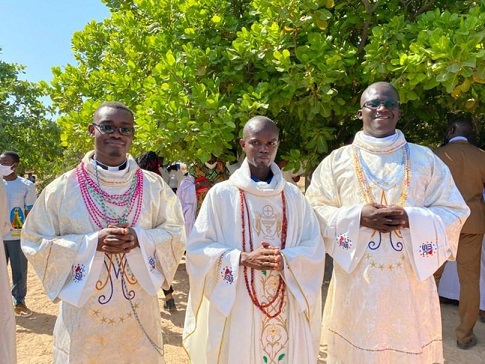
Newly ordained.